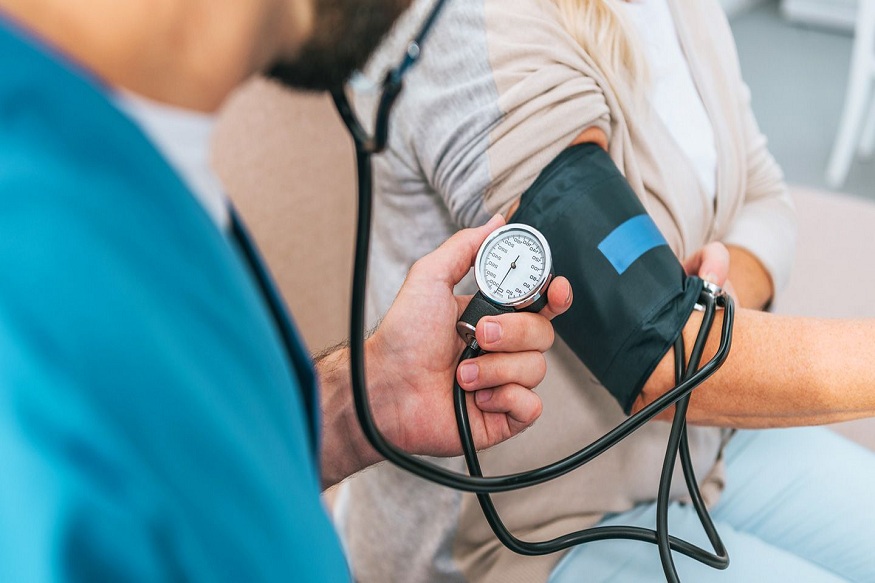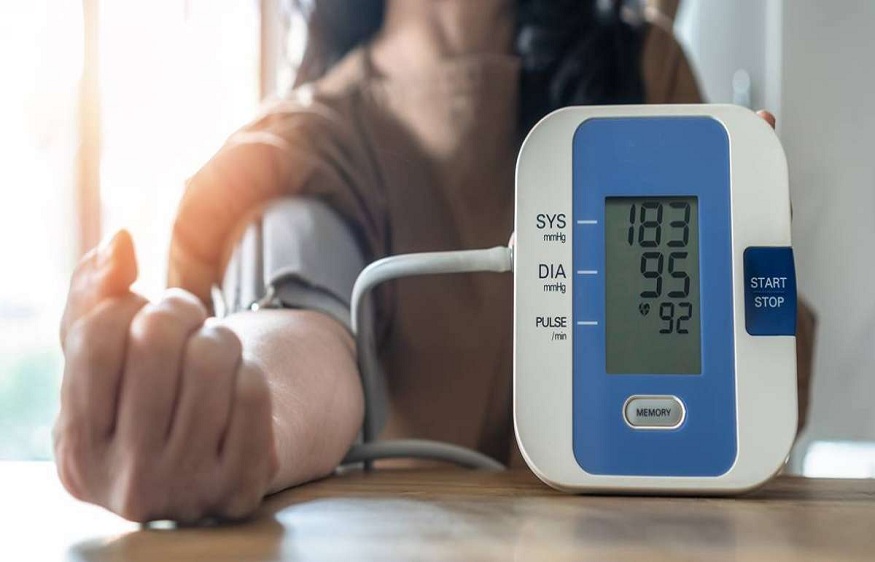Menopausal high blood pressure: anticipate it through effective cardio-gynecological cooperation!
A true silent killer, high blood pressure is one of the very first cardiovascular risk factors, particularly at menopause. The gynecologist plays a key role in screening these women for cardiovascular risk.
Menopause is a period during which blood pressure frequently increases. In a study of more than 5,000 women, hot flashes were associated with an increase in cholesterol levels, body mass index (weight-to-height ratio2) and blood pressure (Gast GC et al., journal “Hypertension” 2008). The findings of the Esteban study in France in 2018 ( www.santepubliquefrance.fr ) are very alarming, highlighting poorer control of hypertension, particularly in women. One in two women aged between 45 and 65 have high blood pressure, with a significant number of women not taking treatment.
At menopause, the progressive estrogen deficiency induces a thickening of the arterial wall and an increase in the tone of muscle fibres, leading to greater rigidity of the arteries. This promotes high blood pressure, particularly on the first number (systolic blood pressure). In addition, at menopause, a large number of women have gradually adopted an unfavorable lifestyle: sedentary lifestyle, stress, unbalanced diet, excess salt, tobacco, alcohol, etc. This promotes weight gain, abdominal obesity, increased triglycerides and bad (LDL) cholesterol, increased blood sugar (sugars in the blood) and blood pressure, all of which form part of an entity called metabolic syndrome. This poor lifestyle also interferes with the effectiveness of hypertensive treatments. Finally, psychosocial factors, which are much more harmful in women, promote or aggravate high blood pressure. Depressive syndrome, chronic stress, social isolation, and precariousness must therefore be screened for and taken into account in all women entering menopause.
Let us also remember that pre-eclampsia (hypertension during pregnancy with kidney damage) and gestational diabetes are two early risk factors specific to women. They promote the development of hypertension and metabolic syndrome at menopause.
The weight of hypertension on the risk of cardiovascular mortality is thus much higher in women than in men. Hypertensive women over 60 are less well controlled than men of the same age. Their hypertension is also more often complicated: stroke, myocardial hypertrophy (heart too big), impaired diastolic function (the heart has difficulty filling with blood), atrial fibrillation (rhythm disorder in the atria, which are cavities of the heart), heart failure (the heart can no longer properly perform its function of pumping blood circulation), renal failure, etc.
It is important to pay attention to several non-specific warning symptoms that may be similar to those experienced during menopause: headaches, palpitations, extreme fatigue, chest pain, loss of energy, shortness of breath, sleep disorders, concentration disorders, etc. These symptoms vary over time and may increase in situations of physical or mental stress. They should lead to screening for high blood pressure.
During menopause, it is important to have your blood pressure checked by your doctor, sometimes by your pharmacist, or by self-measurement at home, with an automatic blood pressure monitor, preferably on the arm. The goal is to have a blood pressure lower than 140/90 mm Hg at the doctor’s office or at your pharmacist’s and lower than 135/85 mm Hg by self-measurement at home.
Cooperation between cardiologists, vascular doctors, general practitioners, gynecologists and pharmacists should be promoted, to optimize the care pathways of women with cardiovascular risk factors. It is also necessary to involve women in their care, by helping them prepare for their consultation with their history, including gynecological and obstetric history, by listing the different treatments in progress and by educating them in self-measurement of blood pressure.
Good news: hypertension is not inevitable. It is possible to act very effectively through regular screening, by adopting a favorable lifestyle (regular physical activity, moderate salt and alcohol consumption, stress management) and by scrupulously following the instructions of their doctor. They will also be alerted to the effects of certain treatments (anti-inflammatories, antidepressants, corticosteroids in particular) on blood pressure.














Post Comment
You must be logged in to post a comment.